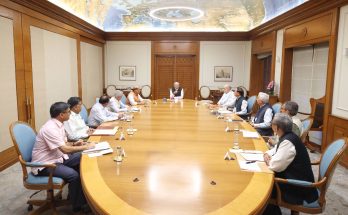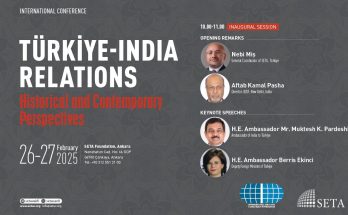
India and Russia have decided to intensify their cooperation in countering terrorism and to increase their strategic coordination in dealing with Afghanistan and its Taliban rulers. These were key outcomes of National Security Adviser Ajit Doval’s February 7-9 visit to Moscow.
The highlight of Mr Doval’s visit to Moscow was his meeting with Russian President Vladimir Putin. “President Putin does not meet visiting ministers of NSAs. Putin broke protocol to meet Mr Doval, which was his way of signalling the importance he attaches to nurturing India-Russia relations in these challenging times,” said Manish Chand, CEO, India Writes Network and Centre for Global India Insights (CGII).
In his meeting with his Russian counterpart Nikolai Patrushev, issues relating to Afghanistan featured prominently in discussions.

Mr. Doval stressed the need to ensure that the territory of Afghanistan does not become a source of radicalization and terrorism, regionally or globally. The two sides decided to intensify intelligence and security cooperation to deal with terror outfits, including those designated under the UN Security Council resolution 1267.
This high-profile visit took place prior to G-20 Foreign Ministers meeting to be held in March in New Delhi. Russian Foreign Minister Sergey Lavrov will visit Delhi for this meeting.
Looking ahead, enhancing security and counter-terror cooperation will loom large in India-Russia cooperation. Speaking at a conference organised by India Writes Network and CGII, Pankaj Saran, a former ambassador to Russia, said: “There is a lot we can do together on the terrorism and radicalization front provided we have agreement on a few basic issues and one of those basic issues is where does the problem of terrorism and radicalization emanate both for Russia and for India and for the world”. He was alluding to Pakistan’s role in fomenting terrorism in the region. The conference entitled, ‘Next Steps in India-Russia Strategic Partnership: Old Friends, New Horizons’ was held in New Delhi on February 6 to mark the 30th anniversary of the 1993 Treaty of India-Russia Friendship Treaty.
Mr Saran, who also served as Deputy National Security Adviser, singled out Pakistan as the source of cross-border terrorism in the region. In this context, Mr Saran said that as the problem of terrorism is next door to India, the dialogue on countering terrorism needs to be more frank with Russia.
Mr Saran suggested increasing coordination between India and Russia in stabilizing Afghanistan. “The Russian approach to the Taliban and the Indian approach to the Taliban also require greater discussion among our intelligence and security officials”. “In the last couple of years or so it’s clear that the Taliban and its true nature and the threats from Afghanistan to the Central Asian republics and Russian mainland are very serious”, he mentioned.
India has not yet recognised the Taliban regime in Afghanistan and has been advocating the formation of a truly inclusive and representative government in Kabul.
(Shruti Saxena contributed inputs for this article)
Author Profile
- India Writes Network (www.indiawrites.org) is an emerging think tank and a media-publishing company focused on international affairs & the India Story. Centre for Global India Insights is the research arm of India Writes Network. To subscribe to India and the World, write to editor@indiawrites.org. A venture of TGII Media Private Limited, a leading media, publishing and consultancy company, IWN has carved a niche for balanced and exhaustive reporting and analysis of international affairs. Eminent personalities, politicians, diplomats, authors, strategy gurus and news-makers have contributed to India Writes Network, as also “India and the World,” a magazine focused on global affairs.
Latest entries
 India and the WorldJune 26, 2025Operation Sindoor: India Sheds Restraint, Rediscovers Utility of Force
India and the WorldJune 26, 2025Operation Sindoor: India Sheds Restraint, Rediscovers Utility of Force India and the WorldJune 23, 2025BRICS summit in Rio to focus on Global South, local currency trade
India and the WorldJune 23, 2025BRICS summit in Rio to focus on Global South, local currency trade Africa InsightsJune 11, 2025New Opportunities in India-Japan Cooperation in Africa
Africa InsightsJune 11, 2025New Opportunities in India-Japan Cooperation in Africa India and the WorldMay 23, 2025Post-Operation Sindoor, India reminds Turkey, China of concerns and sensitivities
India and the WorldMay 23, 2025Post-Operation Sindoor, India reminds Turkey, China of concerns and sensitivities







